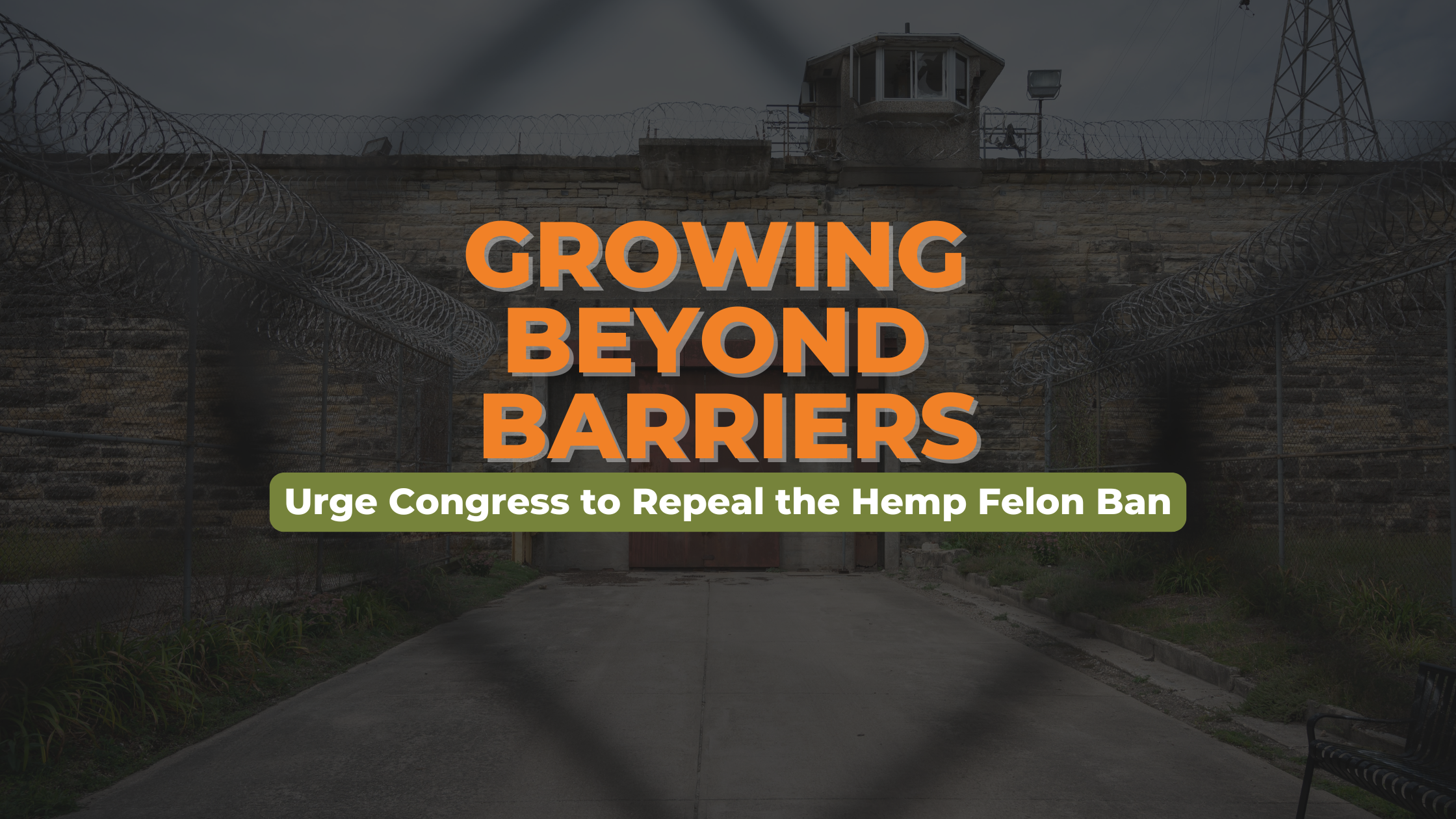Urge Congress to Repeal the Hemp Felon Ban

The hemp industry, despite its long-standing history and widespread benefits, faces a significant regulatory hurdle known as the Hemp Felon Ban. This policy prevents individuals with felony convictions from participating in the hemp industry, limiting its growth and undermining efforts towards broader cannabis policy reform. It is imperative for advocates, policymakers, and the public to unite in urging Congress to repeal this ban, paving the way for a more inclusive, equitable, and thriving industry.
The Historical Use and Benefits of Hemp
Hemp has been used for centuries, valued for its versatility and sustainability. From producing textiles and paper to serving as a source of food and biofuel, hemp offers a myriad of environmental and economic benefits. It requires minimal pesticides, enriches soil health, and can significantly reduce carbon footprints by absorbing carbon dioxide at impressive rates. Despite these advantages, the Hemp Felon Ban stymies the full realization of hemp’s potential by restricting who can cultivate and profit from it.
The Current Legal Framework and Its Impact
The Hemp Felon Ban, part of the 2018 Farm Bill, prevents individuals with felony drug convictions from obtaining licenses to grow hemp for the first ten years after their conviction. While intended to maintain industry integrity, the ban disproportionately affects communities already marginalized by the War on Drugs, preventing them from benefiting from an industry they helped popularize. This policy not only hinders personal opportunities but also limits community development and innovation within the hemp sector.
Advocacy and Reform Efforts
Organizations like the Last Prisoner's Project are at the forefront of the fight to dismantle the Hemp Felon Ban. They work tirelessly to highlight the ban's injustices and to advocate for policy changes that promote fairness and inclusivity. These efforts include raising public awareness, lobbying legislators, and supporting those directly affected by the ban in their pursuit of new opportunities within the hemp and cannabis industries.
Case Study: Tennessee's Hemp Industry
Tennessee stands as a poignant example of the Hemp Felon Ban's impact. The state has seen a burgeoning hemp industry, with local producers contributing to the economy and providing sustainable alternatives to traditional agriculture. However, the ban limits the industry's growth by excluding experienced individuals eager to participate and innovate. Repealing the ban could boost Tennessee’s economy and create jobs, while also advancing the state’s reputation as a leader in sustainable agriculture.
Call to Action
Action is needed now more than ever. We call upon cannabis enthusiasts, legalization advocates, and reform-minded individuals to contact their local representatives, urging them to support the repeal of the Hemp Felon Ban. Share this post to help raise awareness about the ban's detrimental impact, and join advocacy groups such as the Last Prisoner's Project and Tennessee Healthy Alternatives Association to further the cause. Together, we can make a difference in securing a more just and sustainable future for the cannabis and hemp industries.
Conclusion
The repeal of the Hemp Felon Ban is not just an industry issue; it is a matter of social justice and economic opportunity. By advocating for policy reform, we can create a more inclusive environment where all individuals have the chance to contribute to and benefit from the hemp industry's growth. Join us in this vital effort to shape a fairer and more sustainable future.

